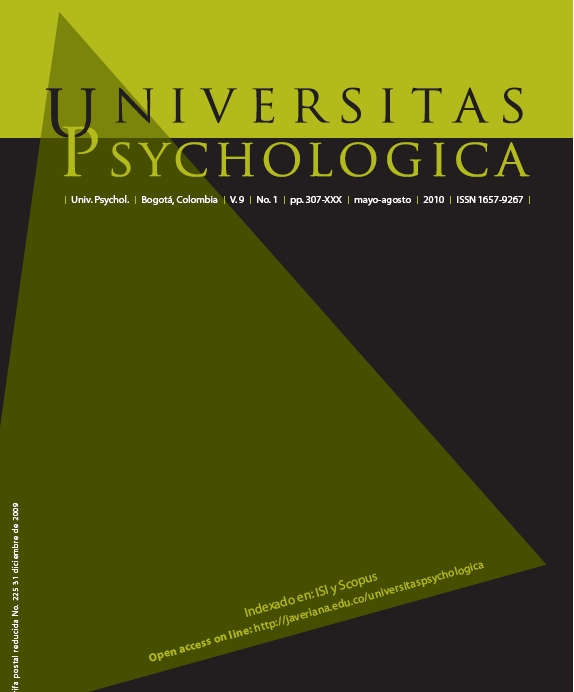Abstract
Lay theories are theories that lay people use to understand and predict events in their everyday life. Empirical evidence suggests that lay theories impact intergroup relations, among other things, , because of their ability to promote tolerance or rejection towards social minorities. This review focuses on research findings on the relationship between three lay theories (Protestant Work Ethic, Just World Belief and Psychological Essentialism), and attitudes toward minority groups across several social and cultural contexts, while addressing the role of other variables that may have an impact on their interpretation (perceiver and contextual characteristics). In doing so, it attempts to establish the relevance of the study of lay theories in the Latin-American context emphasizing the findings of the scarce, yet substantial, work performed so far, as well as the need to perform more research in this direction
This journal is registered under a Creative Commons Attribution 4.0 International Public License. Thus, this work may be reproduced, distributed, and publicly shared in digital format, as long as the names of the authors and Pontificia Universidad Javeriana are acknowledged. Others are allowed to quote, adapt, transform, auto-archive, republish, and create based on this material, for any purpose (even commercial ones), provided the authorship is duly acknowledged, a link to the original work is provided, and it is specified if changes have been made. Pontificia Universidad Javeriana does not hold the rights of published works and the authors are solely responsible for the contents of their works; they keep the moral, intellectual, privacy, and publicity rights. Approving the intervention of the work (review, copy-editing, translation, layout) and the following outreach, are granted through an use license and not through an assignment of rights. This means the journal and Pontificia Universidad Javeriana cannot be held responsible for any ethical malpractice by the authors. As a consequence of the protection granted by the use license, the journal is not required to publish recantations or modify information already published, unless the errata stems from the editorial management process. Publishing contents in this journal does not generate royalties for contributors.


